★★
“Zombie Women of the S.S.”
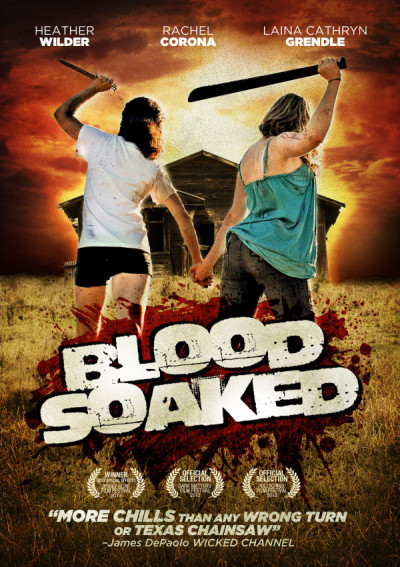 It’s nice to see a horror movie which has women on both sides: not just the “final girl” trope, but as the entirely deranged pair of antagonists. This is equality at work, folks! In this case, the villains are sisters Sadie (Grendle) and Katie (Derryberry), who were apparently left orphaned by the unexpected death of their father who was… Well, if I’d to guess, I’d say he was trying to continue the work of Nazi scientists, with the aim of creating an army of undead slaves through the use of a resurrection serum, who can then be used to bring about the Fourth Reich. I’m kinda assuming this, from the use of copious public-domain Nazi footage during the opening credits, and the swastikas hanging around their desert bunker. Meanwhile, peppy student Piper (Wilder) is starting at college, and before long is exploring her sexuality with fellow student, Ashley (Corona). The pair head out into the desert, but a roadside encounter with our psycho sisters kicks off the horror part of proceedings, with Piper in particular being stalked, captured and dragged into the Naziettes lair where even worse things await.
It’s nice to see a horror movie which has women on both sides: not just the “final girl” trope, but as the entirely deranged pair of antagonists. This is equality at work, folks! In this case, the villains are sisters Sadie (Grendle) and Katie (Derryberry), who were apparently left orphaned by the unexpected death of their father who was… Well, if I’d to guess, I’d say he was trying to continue the work of Nazi scientists, with the aim of creating an army of undead slaves through the use of a resurrection serum, who can then be used to bring about the Fourth Reich. I’m kinda assuming this, from the use of copious public-domain Nazi footage during the opening credits, and the swastikas hanging around their desert bunker. Meanwhile, peppy student Piper (Wilder) is starting at college, and before long is exploring her sexuality with fellow student, Ashley (Corona). The pair head out into the desert, but a roadside encounter with our psycho sisters kicks off the horror part of proceedings, with Piper in particular being stalked, captured and dragged into the Naziettes lair where even worse things await.
There are two main problems here: one stylistic, and the other an issue of pacing. The former is the decision to switch into high-contrast black and white, when it first becomes clear to Piper, the trouble she’s in. While it certainly adds impact to the that moment, the film-makers apparently forgot to flip the switch back on their camcorder, and any impact is lost. You give your film a title like Blood Soaked, and we expect to see… well, blood. Here, however, it might as well be chocolate sauce, as used by Alfred Hitchcock in Psycho. That’s when you can see it at all, as the high-contrast mentioned tends to wash everything into the two ends of the spectrum: all or nothing.
Equally problematic, is the film taking too long to get to a point where it is even attempting to justify the title. It barely runs an hour between opening and the end credits rolling, which should be an incentive to get cracking and have things moving on at a fast pace. We do not need to see Piper showing up to college with her mom. We do not need to see Piper and Ashley meeting and building their relationship. We do not care. I’d have been a lot more interested to see what Sadie and Katie were up to over the decade after their father died, though quite how such a pair of certifiable loony tunes were able, not just to survive but flourish, escapes me. In the end, it commits the single, unforgivable sin of both original grindhouse cinema and modern films which attempt to reproduce its philosophy: it’s mostly dull. By the time the mayhem eventually showed, I was already trying to figure out if I could do household chores, while leaving this on in the background. Never a good sign…
Dir: Peter Grendle
Star: Heather Wilder, Rachel Corona, Hayley Derryberry, Laina Grendle





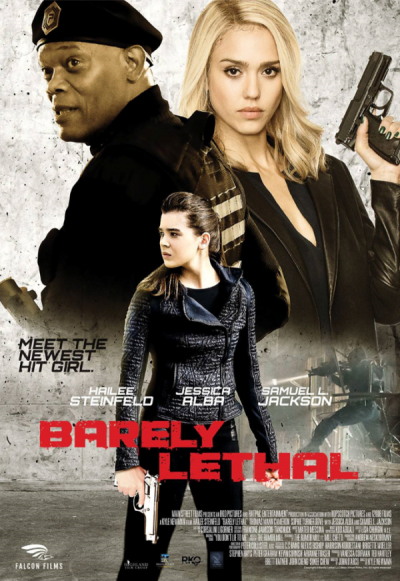
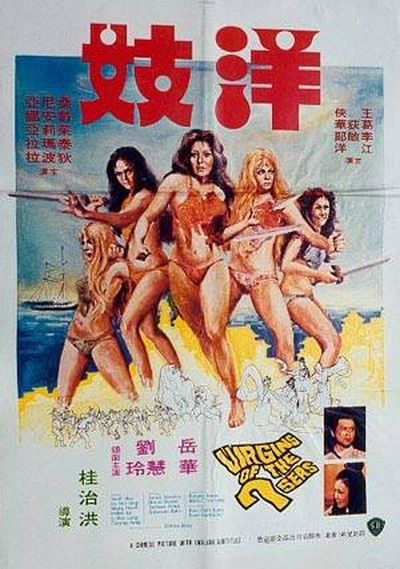
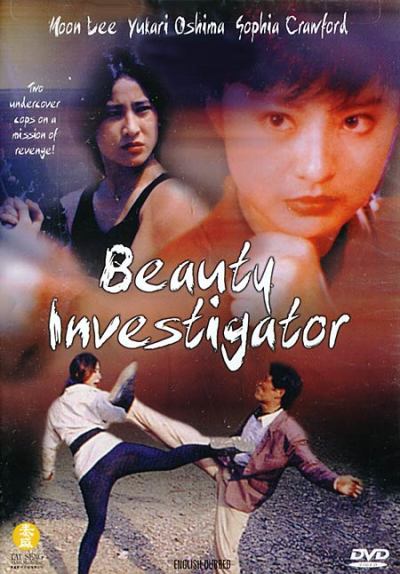 Ellen (Lee) and Grace (Kim) are police officers, who are first on to arrive when the latest victim of a serial sexual predator is found in a dumpster. After a brief diversion to catch a purse snatcher – really, how dumb must you be to do that at a murder scene? – they are sent undercover as nightclub hostesses, since that’s the profession of all the victims. While fending off both lecherous customers and employers, they stumble across an arms smuggling outfit, whose leader Bill (Tsui) has pulled a fast one over his Yakuza partners, with the help of a hired hitwoman (Oshima, whose character in the end credits is named as, I kid you not, “Japanese Jap”!). Rather than letting their superiors know, they decided to investigate themselves. Probably not the wisest of moves: as they’ll discover by the end of the movie, discretion is indeed the better part of valour…
Ellen (Lee) and Grace (Kim) are police officers, who are first on to arrive when the latest victim of a serial sexual predator is found in a dumpster. After a brief diversion to catch a purse snatcher – really, how dumb must you be to do that at a murder scene? – they are sent undercover as nightclub hostesses, since that’s the profession of all the victims. While fending off both lecherous customers and employers, they stumble across an arms smuggling outfit, whose leader Bill (Tsui) has pulled a fast one over his Yakuza partners, with the help of a hired hitwoman (Oshima, whose character in the end credits is named as, I kid you not, “Japanese Jap”!). Rather than letting their superiors know, they decided to investigate themselves. Probably not the wisest of moves: as they’ll discover by the end of the movie, discretion is indeed the better part of valour…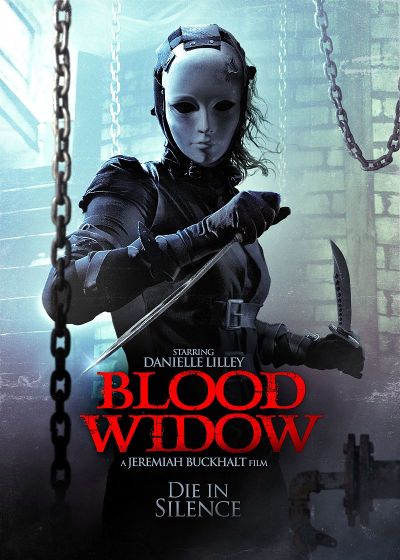 In the slasher genre of horror, the perpetrators seem almost exclusively male: Michael Myers, Jason Vorhees, Freddy Krueger, etc. Women can play an important role, and we’ve covered some of them here before – but it’s much more often as the “final girl”, than the one wielding the machete. However, it’s often forgotten that, in the original Friday the 13th movie, the killer was not Jason, but his mother, so there is some precedent for the female antagonist. See also Nurse 3D, American Horror Story: Coven or perhaps best of all,
In the slasher genre of horror, the perpetrators seem almost exclusively male: Michael Myers, Jason Vorhees, Freddy Krueger, etc. Women can play an important role, and we’ve covered some of them here before – but it’s much more often as the “final girl”, than the one wielding the machete. However, it’s often forgotten that, in the original Friday the 13th movie, the killer was not Jason, but his mother, so there is some precedent for the female antagonist. See also Nurse 3D, American Horror Story: Coven or perhaps best of all, 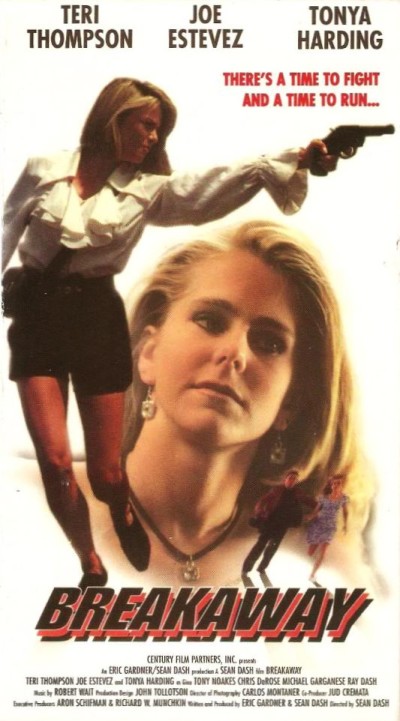


 Following on more or less directly from the events of
Following on more or less directly from the events of 
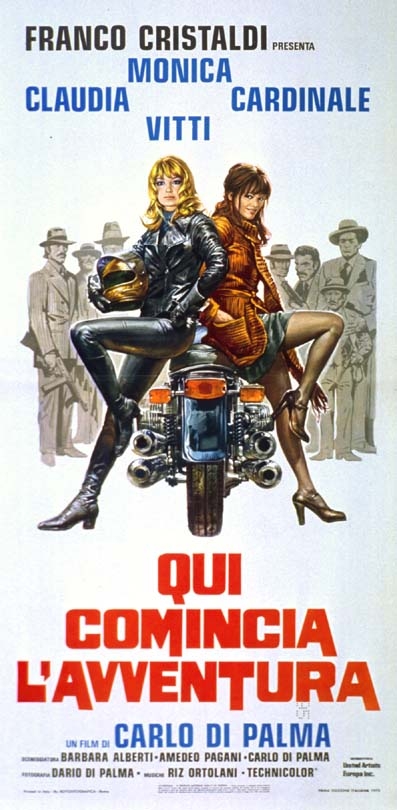 Claudia (Cardinale) has a humdrum life working in a laundrette, with a sleazy husband and no hope of anything more exciting in her future. Into the laundrette storms the titular woman, Miele (Vitti), whose devil-may-care attitude enthralls Claudia, and gives her the courage to throw away her staid existence and follow the blonde on the road. Miele is initially resistant to the idea of a travelling companion, but rides to the rescue, driving her bike through the railway station where Claudia is being harassed. Miele must make a mysterious appointment in Northern Italy with her lover, but that’s okay, as Claudia has a cousin, on the way, in Naples. However, as the two make their way, it gradually becomes clear that Miele could give Baron Munchausen a run for his money, when it comes to spinning tall tales, and both her mouth and impetuous actions, are as likely to get the pair into trouble as out if it.
Claudia (Cardinale) has a humdrum life working in a laundrette, with a sleazy husband and no hope of anything more exciting in her future. Into the laundrette storms the titular woman, Miele (Vitti), whose devil-may-care attitude enthralls Claudia, and gives her the courage to throw away her staid existence and follow the blonde on the road. Miele is initially resistant to the idea of a travelling companion, but rides to the rescue, driving her bike through the railway station where Claudia is being harassed. Miele must make a mysterious appointment in Northern Italy with her lover, but that’s okay, as Claudia has a cousin, on the way, in Naples. However, as the two make their way, it gradually becomes clear that Miele could give Baron Munchausen a run for his money, when it comes to spinning tall tales, and both her mouth and impetuous actions, are as likely to get the pair into trouble as out if it.